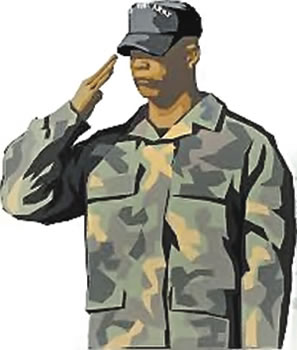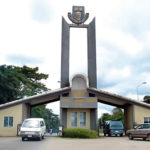JANUARY 15 every year is set aside as the Armed Forces Remembrance Day in Nigeria. On that day, moving speeches are delivered by unmoved government functionaries in honour of Nigerian soldiers who lost their lives at the various theatres of war in which the nation had been involved, especially the 30-month civil war between 1967 and 1970.
Lionheart: Nollywood struck dumb as Genevieve Nnaji breaks records, stereotypes
Emblems are bought by important dignitaries across the country. The president, state governors as well as military top brass lay wreaths at the tomb of the Unknown Soldier while pigeons are released as a sign of peace. It is a day that dead soldiers are literally brought back to life and redecorated.
But while dead soldiers are honoured by the nation, those who are not yet dead are completely ignored. Millions of naira is voted for the celebration of the Remembrance Day by the government but the wounded, the sick and the dying ex-soldiers, many of who fought to make the ‘One Nigeria’ dream a reality, are neither remembered nor honoured. They are left to their pains, abandoned to their sorrows, forsaken in their sicknesses and neglected in their penury. They were there for their fatherland when it needed them but they have been abandoned by their country in their own time of need.
While it is not a bad idea to honour fallen heroes, it is nothing short of wickedness to fail to show care to the living that are hurting and sick. The dead are not really the casualties of the wars because they are too far gone to feel any pain as John Pepper Clark has made us to understand. The real casualties that should be honoured and catered for are those soldiers who sacrificed their youthful years to keep the nation strong. Those who really deserve celebration are those soldiers who sustained permanent injuries in their bid to defend their country, those who bear on their bodies constant reminders of their personal losses in their service to their fatherland.
While oodles of naira would be spent to release pigeons and lay wreath in remembrance of the dead on Tuesday, many military pensioners languish in abject poverty as their pensions have remained unpaid. Many of these former gallant soldiers have no roof over their heads, they cannot feed well and they cannot cater for their dependants. Consequently, many of them are now regarded by friends and relations as unnecessary burden; they are avoided like lepers because of their pitiable living conditions.
Old age is particularly a precarious stage of life; many of these retired soldiers battle with one ailment or the other which requires the purchase of not inexpensive drugs regularly. Many are placed on special diets that are not as affordable as the regular food items. That means the hoary years are costly ones and the ‘old soldiers’ need more money for their upkeep now than they actually did in their growing years. So, these aged soldiers have enough challenges without the problem of a former employer depriving them of their entitlements.
The Armed Forces Remembrance Day is a sad reminder to our gallant old soldiers that the contributions of their fallen colleagues are better appreciated than theirs. This is because the government seems to value the dead more than the living.
But which is more rewarding, to pay these old soldiers their paltry pensions or to lay wreath on the tomb of an ‘Unknown Soldier?’ Which would be more beneficial, to take care of sick retired soldiers or to release pigeons of peace in honour of dead soldiers who are unable to appreciate the gesture? Which would be more advantageous, eulogising the dead or energising the living?
These old soldiers are in the twilight of their years and they should not be made to go into their graves with regrets. The government should do all in its powers to make them feel happy and appreciated. Armed Forces Remembrance Day should not be turned into a day of torment and sorrow for our old soldiers. It should not be made a day that retired and dying soldiers would wish they had never joined the military. It should not be turned into a day that old soldiers would wish they were dead. The government should do all in its power to make the final days of these people as enjoyable as humanly possible.
WATCH TOP VIDEOS FROM NIGERIAN TRIBUNE TV
- Relationship Hangout: Public vs Private Proposals – Which Truly Wins in Love?
- “No” Is a Complete Sentence: Why You Should Stop Feeling Guilty
- Relationship Hangout: Friendship Talk 2025 – How to Be a Good Friend & Big Questions on Friendship
- Police Overpower Armed Robbers in Ibadan After Fierce Struggle







